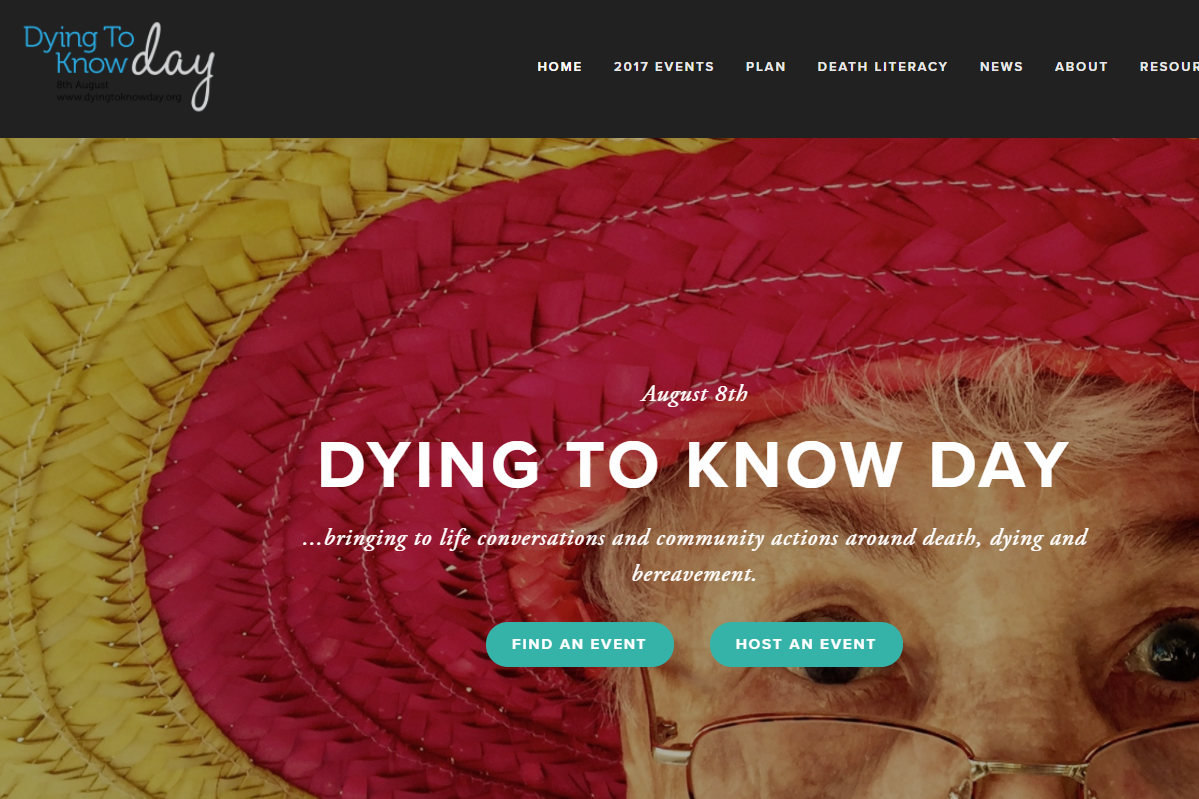
Today is Dying to Know Day – 8th August 2017 – http://www.dyingtoknowday.org/, an initiative by the charity Igniting Change.
It is a day where we are encouraged to talk about death, dying and bereavement.
These can be confronting conversations.
But there are practical and psychological benefits of talking more openly about death.
At a practical level, the failure to talk about death leaves many individuals and families confused at the point of loss.
For example:
- 75% of Australians have not had end of life discussions, so our loved ones do not know what we want.
- 60% of us think we don’t talk about death enough, and perhaps feel the topic is too taboo to discuss openly.
- Over 70% of us die in hospital, although most of us would prefer to die at home. Without these discussions, such plans can’t be made.
- Very few (10%) of us die with an advance care plan, leaving loved ones to make difficult decisions at the most vulnerable of times.
Open conversations about death allow us to address these issues directly.
But there are also psychological benefits of conversations and pondering about death which are neatly encapsulated in this video.
What can you do to mark this important day?
1) Take some time to visit the following websites
Dying to Know Day official website – http://www.dyingtoknowday.org/ – a comprehensive look at the various events and projects that revolve around the exploration of death
The Groundswell Project – http://www.thegroundswellproject.com/ – a non profit organisation with the goal of promoting ‘resilience and wellbeing in response to end of life issues and to encourage people to build their death literacy’.
Death Cafe – http://deathcafe.com/ – an online discussion group on the topic of death. This organisation also supports individuals and groups to host their own “Death Cafes”
Death Over Dinner – http://deathoverdinner.org.au/ – encouraging Australians to hold important discussions about death before the event.
2) Consider some light reading
I’ve found the work by Irvin Yalom to be really helpful in thinking about death, and confronting death anxiety – try starting with https://www.amazon.com/Staring-Sun-Overcoming-Terror-Death/dp/0470401818
3) Start an informal conversation.
So I’ll admit, its difficult to walk up to a friend and say “hey, lets talk about death”. It might not be high on their list of preferred topics. Maybe the websites above are a good ice-breaker – “Hey did you know that people hold death dinners?!” I’m pretty sure that phrase will at least get their attention.
4) Start with your own family
Everyone is a son or daughter. Many of us are parents. Have you had conversations about end of life care, wills, care directives in your own family? These are not easy conversations to have, but knowing clearly what the desires of your family members are in relation to death may significantly reduce the confusion at the point of loss.
Feel free to comment below, abuse me on Twitter (@Dr_Furber), contact me on Skype (search for ‘eMental Health Project Officer Gareth’), or email me (gareth.furber{at}flinders.edu.au)

